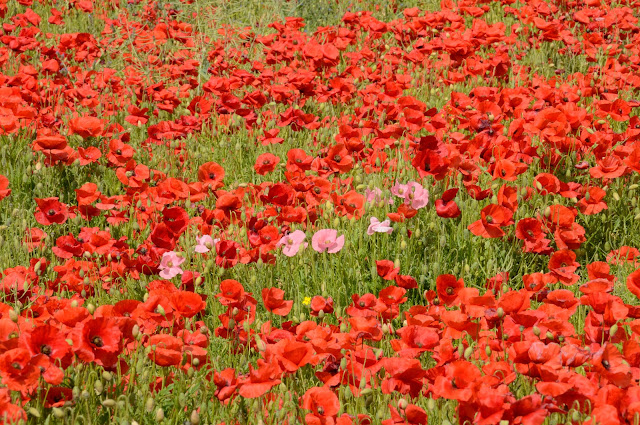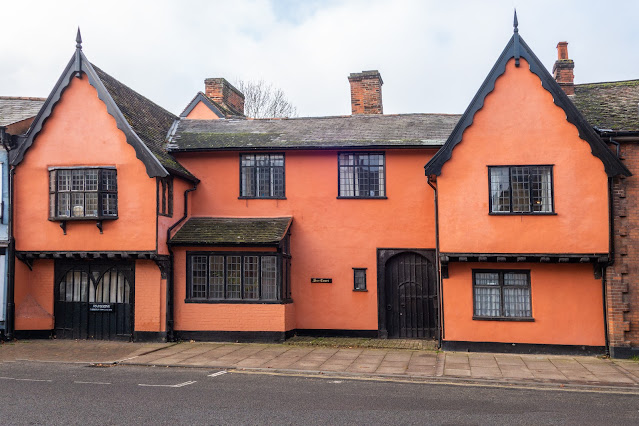Red, yellow, white and blue - Colours of Spring
The world seems full of colour so far this year and I have found it difficult to know quite where to point the camera sometimes! We have Poppies, Oilseed Rape, Wild Garlic, and Bluebells, all seen in profusion around the county. We sure live in a beautiful world!
Once considered a weed of arable fields, the development of intensive agricultural practices has resulted in the decline of the Common poppy (also known as 'Corn poppy') in the wild. This familiar, showy flower is now most likely to occur as part of intentional wildflower seeding, or as the result of the disturbance of soil containing old seed banks. Its strongholds remain roadside verges, scrub, waste ground and farmland.
The pictures here however, were taken in a field near home which had another later crop growing in it. Some years I guess they are killed off, but 2011 was a good year for them.
The same field which had the Poppies in it, also has this pungent Oilseed Rape (Brassica napus subsp. napus) fairly frequently.
The Daily Mail ran an article which makes you think, even if it was a tad dramatic.
"But this agricultural love affair with rape has come at a heavy price. Oilseed rape needs much help to grow, in the form of nitrogen-rich fertilisers.
That means that the run-off from fields of oilseed rape into water supplies is polluting streams, rivers and underground aquifers.
Back in 2004, a report from the Office for National Statistics revealed that each year, a single oilseed rape crop receives an average of three sprayings with herbicides, two of fungicides.
However, it is thought the plant may now be developing resistance to some agricultural chemicals.
And it gets worse. Oilseed rape is also very vulnerable to attack by insects — which means it needs to be regularly sprayed with chemical insecticides as well.
These include the notorious neonicotinoids, known to be causing a decline in many species of bees.
Ironically, those gaudy, yellow, nectar-rich flowers are irresistible to insects.
In the words of Steve Benbow, author of The Urban Beekeeper, oilseed rape is like crack cocaine for honeybees. But if the plants have recently been sprayed with chemicals designed to kill insect pests, the bees may then be poisoned, as Benbow himself has witnessed."
If you’re walking through a patch of countryside where wild garlic grows your nose will alert you. The garlicky scent is hard to miss. Wild garlic grows across the UK from late winter until the end of spring. The leaves can be eaten raw or cooked and taste milder than shop-bought garlic. We have several areas where it grows on a regular basis. There is a moderate sized area not far from where the poppies and rapeseed grow in our village.
Well everyone notices Bluebells don't they. Again, several local displays near to home and despite having witnessed many years of Bluebells growing, I still look forward to spotting the first ones!
And so to another few images on the same topic.
Poppies against the beautiful sky
Blackthorn in all its glory.















Comments